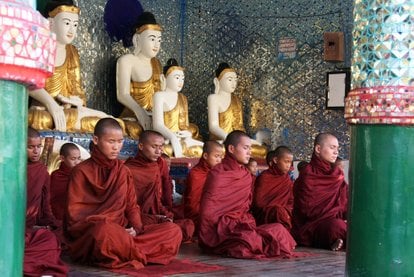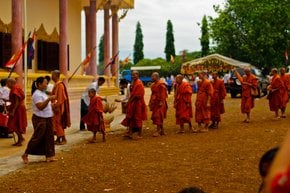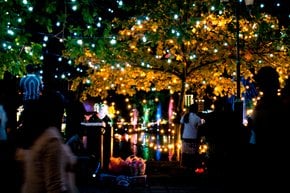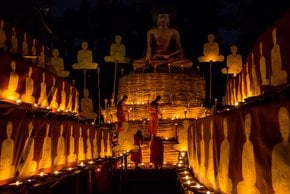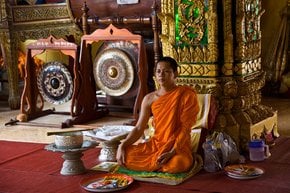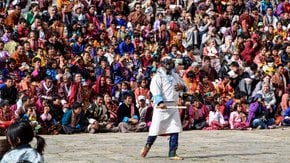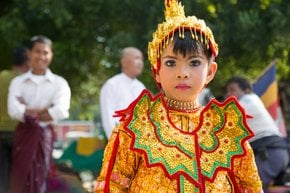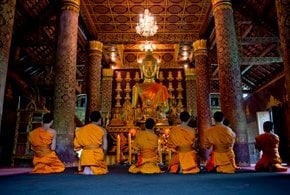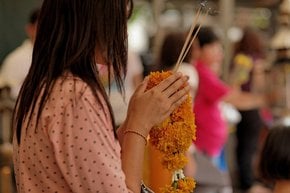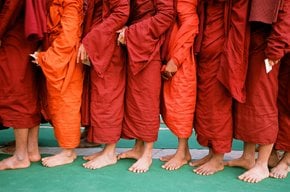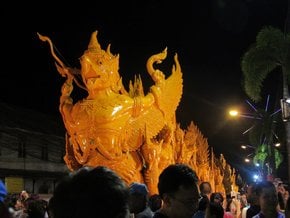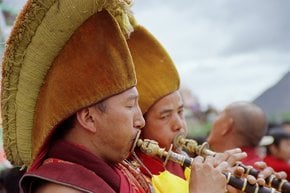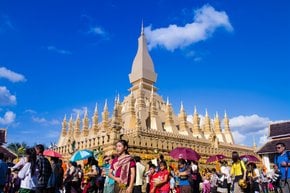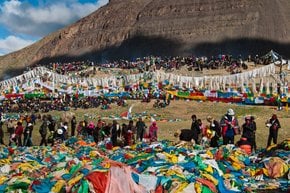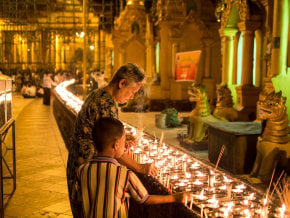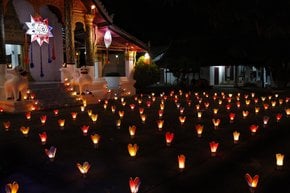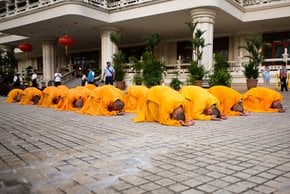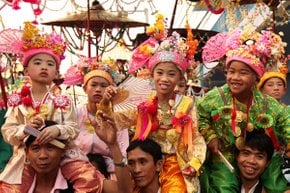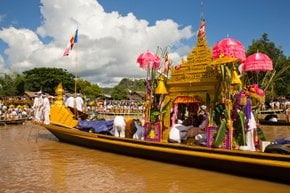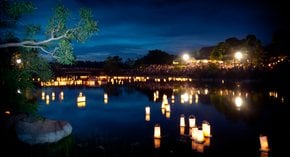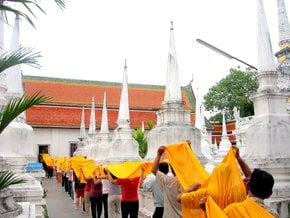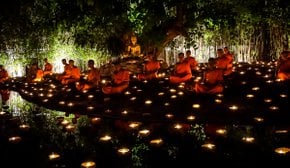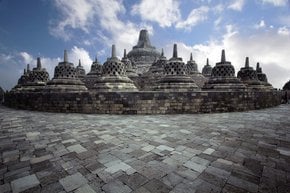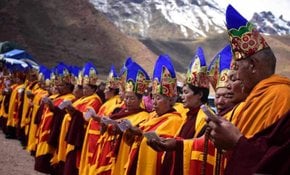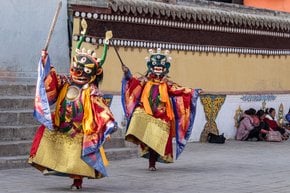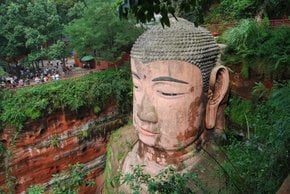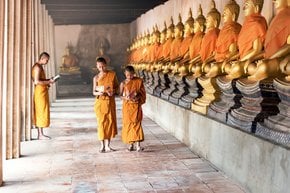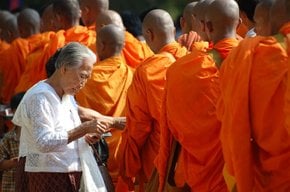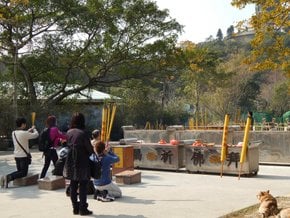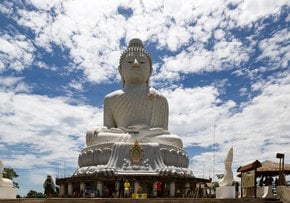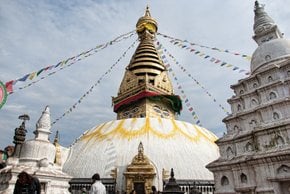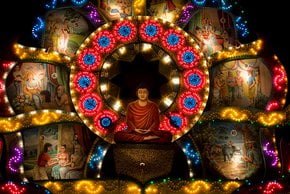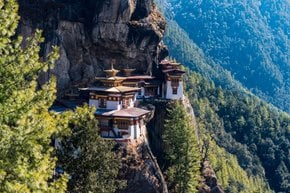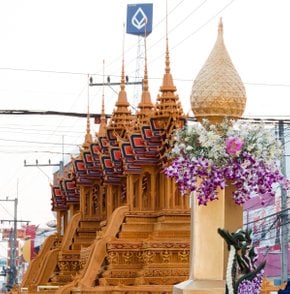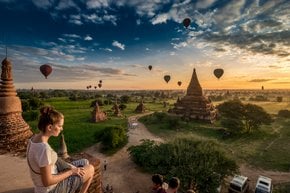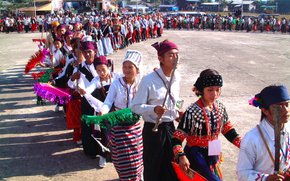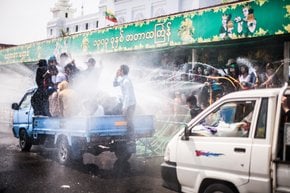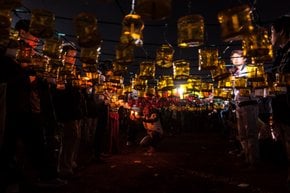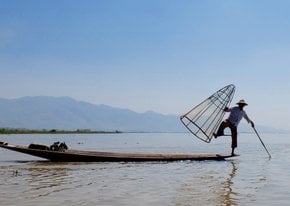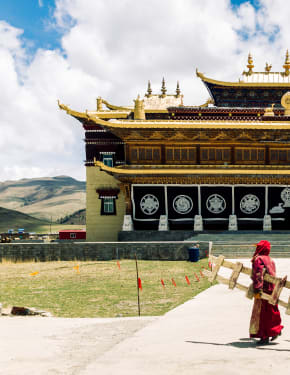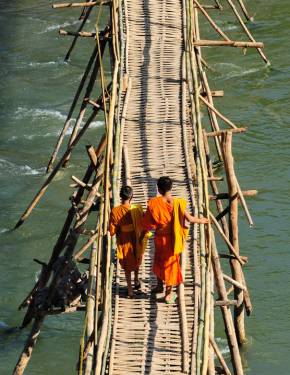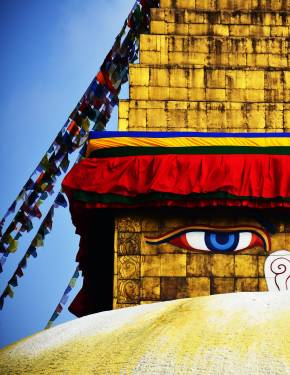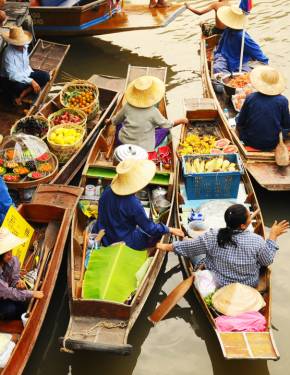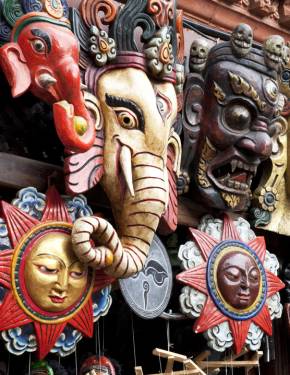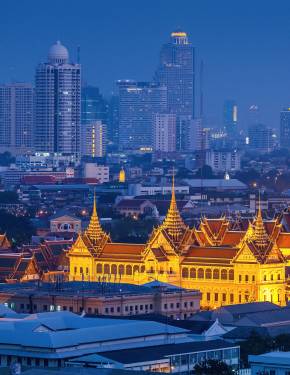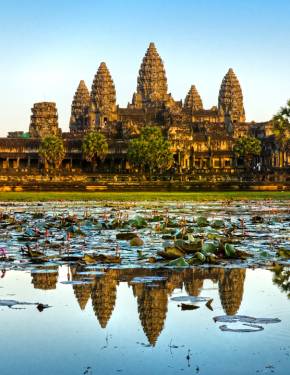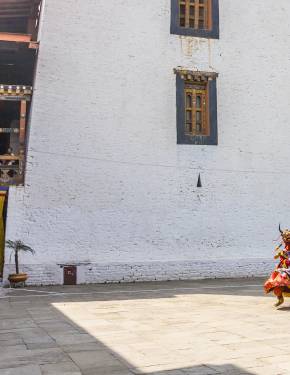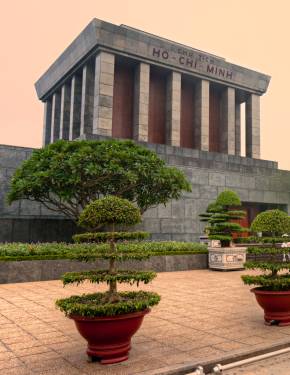Rain Retreat Meditation in Myanmar 2024
You don't need to be a Buddhist to practice meditation, developed by Buddha and called Insight Meditation, or Vipassana
Best time: July 20–October 18, 2024
Rain Retreat Meditation, coinciding with the rainy season, is a time when Buddhist monks and novices remain within their temples or monasteries and are not permitted to spend nights elsewhere. This period of seclusion is dedicated to deepening their practice and reflection. Visitors interested in learning this ancient practice can do so at meditation centers in Myanmar, which welcome international guests. Key principles of the Retreat include maintaining silence, staying on-site for the duration of the course, and adhering to specific mealtimes. Rains Retreat falls on the Buddhist Lent period, so locals also abstain from meat and have strict rules to eat vegetarian dishes only.
Meditation System
Intensive Satipatthana Vipassana, taught by the late Mahasi Sayadaw, focuses on continuous awareness of physical and mental phenomena. Practitioners observe the rising and falling of the abdomen or movements of the feet during walking and mentally note and experience these phenomena. The practice aims to reveal insights into impermanence, suffering, and non-self through detailed observation and formal meditation sessions, typically involving 13 to 14 hours of sitting and walking each day. Activities like speaking and reading are discouraged to maintain mindfulness, and Dhamma Talks by the Sayadaw are usually held.
Practical Information
For courses longer than 28 days, a special 90-day meditation visa is required. Most classes are conducted in English, and men and women are housed separately. There is no fee for the courses, accommodation, or food, though donations are welcome at the end of the stay. Participants also have opportunities for questions and private interviews with the teacher, who will explain the eight precepts throughout the course. During the 'Rain's Retreat' (Vassa) from July to October, you can practice under the guidance of experienced teachers. However, most meditation centers are open year-round, welcoming those ready to undertake full-time Vipassana meditation for six to twelve weeks.
Locations
In Myanmar, there are several locations for Vipassana meditation retreats, though they may not be as widely known or promoted as those in India. Most meditation centers are located in larger cities or the areas surrounding Yangon.

